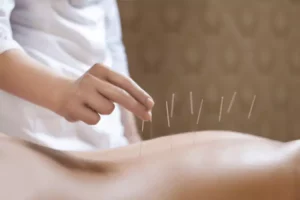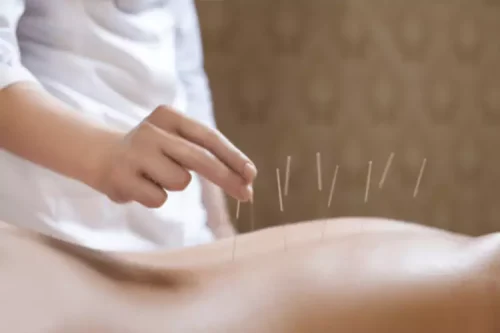
But since cutting out alcohol I’ve found the quality of my sessions has improved, helping me make considerable progress in developing my strength and performance. I’ve chatted casually with friends about the reason behind my decision, and they’ve been nothing but lovely and supportive. But in new environments where drinking is the norm, I try to keep the fact I’m not drinking under wraps by ordering a diet coke or alcohol-free beer on the sly.
What are the symptoms of alcohol withdrawal?
So far, there’s no consensus on the medical definition of recovery in alcohol treatment literature. The prognosis (outlook) for someone with alcohol withdrawal depends greatly on its severity. One of the unexpected benefits of giving up alcohol is that you may find yourself more productive than before.
Your Blood Pressure Will Decrease
Your mental health can also be affected in the first week of sobriety. You might experience mood swings and intense emotions that alcohol was previously numbing. Engaging in alcohol therapy can help you work through these feelings with expert guidance.
- Relationships are complicated, and each one will develop and heal in different ways and timeframes.
- Start by talking to your doctor about how much alcohol you’ve been using and your plan to quit.
- Recovery of thickness in those with AUD after 7.3 months without alcohol was quite widespread.
Day 9

If you struggle to sleep, talk to your doctor about solutions that might help. While giving up alcohol can be a challenge, it’s important to remember that the benefits are well worth it. A glass of regular beer has about 150 calories, and a serving of wine has about 120.
- At the one-year mark, most of the mental and physical dependency on alcohol has disappeared.
- A person with moderate withdrawal symptoms who continues to drink will increase the likelihood of experiencing severe withdrawal symptoms in the future.
- “When you stop using alcohol, your sweet tooth still kicks in, so be careful of which foods and beverages you replace it with,” Johnson says.
- But the sooner you enter alcohol treatment, the sooner you can reap the rewards of abstinence.
As you spend less time and energy managing physical symptoms, you may be wondering – what do I do with all this free time I used to spend drinking or recovering from drinking? Finding fun alcohol-free activities can help you distract yourself from alcohol cravings and build new routines. By day 6, you’re likely to have experienced some fluctuation in your mood and motivation.
Not drinking doesn’t mean giving up other activities you enjoy

For example, research shows that people will see their stress levels, relationships, work performance, and self-confidence get better when they get sober. Studies have also connected alcohol use to an increased risk of stroke, especially for people under the age of 45 years old. When you stop drinking, your skin gets more elastic and the redness and discoloration on your face will slowly fade. Keep a journal or use an app like Drink Control or Drink Aware to track your alcohol-free days and celebrate small wins along the way. https://ecosoberhouse.com/ Drinking can send your hormones into a frenzy—it impacts our endocrine system, which allows our body to respond appropriately and cope with changes in our environments.

Physical Benefits of Quitting Alcohol
Mild symptoms of alcohol withdrawal usually go away after a few days. More severe withdrawal symptoms generally resolve within a week. The three- to five-week period is also when sugar cravings brought on by the lack of alcohol tend to subside, Johnson adds. And, assuming you haven’t indulged those craving the past few weeks, you could find your clothes fit a bit looser. Johnson insists it’s impossible to put a timeline on weight loss since everyone’s diet, metabolism, and activity levels are different. That said, it’s common for people to drop a few pounds at this juncture.
What happens when you quit drinking alcohol for seven days?
- Those who struggle with alcoholism may feel their alcohol withdrawal symptoms start to go away by the 4th day.
- There are many resources available to help, including peer support groups, counseling, therapy, and inpatient rehabilitation.
- Usually there’s a similar number of calories, all of which are empty and primarily made up of sugar, in wine or beer as there is in semi-skimmed milk or orange juice.
- I have a number of patients who come to me on anti-acid drugs, antidepressants and blood pressure lowering drugs, but when they stop drinking they don’t need any of them.
There are many benefits to what happens when you stop drinking alcohol giving up alcohol, both short-term and long-term. If you’re considering quitting drinking, these benefits may be just what you need to help you decide. Of course, giving up alcohol is not always easy, and there may be some challenges along the way. But if you’re committed to sobriety, it’s possible to achieve your goal.

Day 29

At this point, your risk of developing all types of disease will be reduced and your bone density will start to increase. Keep in mind that everyone is different and will experience different things when they stop drinking. Most drinkers start to sleep better after a week of no alcohol consumption. This better sleep is caused by more REM sleep, the deepest stage of sleep where dreaming and memory occur.
Quitting Alcohol: Before and After Quitting Drinking
If you don’t already have other hobbies or interests, now is a perfect time to get some! Find stress-relieving activities like hiking, yoga, working out, cooking, or other things you can do by yourself or with others that don’t involve alcohol. Alcohol use can alter your gut microbiome, which is responsible for key bodily functions like digestion. Your gut microbiome is full of bacteria (both good and bad) that, when properly balanced, help regulate different processes in the body.
